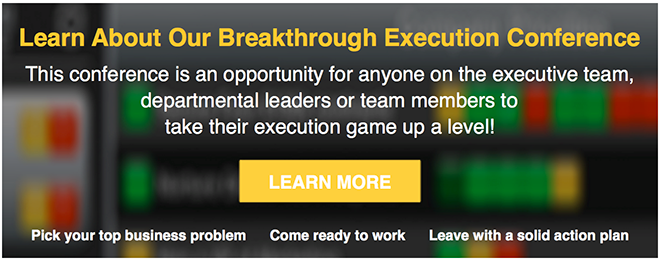As human beings, we all experience stress and anxiety; some stress can actually be a healthy thing. It  can stretch us to grow and change. However, many business owners and entrepreneurs have incredibly high levels of anxiety. While I am not an entrepreneur, my husband did recently start his own business, so I am familiar with the stress that can come along with the exhilaration of starting a new venture. Therefore, I was not surprised by the data in an Inc. Magazine article I recently came across about the extreme stress and anxiety many founders of companies experience, especially early in the endeavor.
can stretch us to grow and change. However, many business owners and entrepreneurs have incredibly high levels of anxiety. While I am not an entrepreneur, my husband did recently start his own business, so I am familiar with the stress that can come along with the exhilaration of starting a new venture. Therefore, I was not surprised by the data in an Inc. Magazine article I recently came across about the extreme stress and anxiety many founders of companies experience, especially early in the endeavor.
In the article, Jessica Bruder states, "It's a stressful job that can create emotional turbulence. For starters, there's the high risk of failure. Three out of four venture-backed startups fail, according to research by Shikhar Ghosh, a Harvard Business School lecturer. Ghosh also found that more than 95 percent of startups fall short of their initial projections.”
As if the risk of failure were not enough to generate additional stress and sleepless nights, the personality type of a person who is more likely to take a risk like starting a company (someone who is passionate, motivated, creative) could also have personality traits that make that person more prone to anxiety and depression. That same drive and obsession that leads them to business success could consume them and be the very thing that is detrimental to their sense of balance and wellbeing. Many entrepreneurs are so consumed by the work that they neglect taking care of themselves, which only exacerbates anxiety and depression. Sometimes the ill effects are not as drastic as a full-blown mental health problem; sometimes stress manifests as an over-reaction to something small, weight gain, moodiness, difficulty sleeping, or the feeling that you can never fully relax.
While to some degree, stress is a very normal reaction to the lives that we lead, if we let it get out of control, it can have very real and negative consequences on our health, relationships, productivity, and well-being.
Here are some tips for managing the stress that comes with running a business:
- Prioritize a healthy lifestyle: Make time for exercise, choose a healthy diet, and ensure you are getting enough sleep. Your physical and mental health are intricately linked, so taking care of your body is a huge part of combating stress and staying resilient. If it feels like you are too busy, it might be time to re-evaluate your priorities. If you don’t have your health, will your business successes ultimately matter?
- Make time for loved ones: Nurturing relationships with family and friends is key to maintaining good mental health. Neglecting these relationships can be especially detrimental if the business venture fails; alienating your support group will only make things worse. There’s also a difference between making time and being present with loved ones. Set aside some time on a regular basis when you can put away your phone, not look at email, and focus on really being with them, listening to them, and enjoying the time you spend together.
- Limit your financial risk: Much of the entrepreneur’s anxiety Bruder sites in her article is due to financial stress. She recommends setting an amount of your own money to invest in the company that you are not willing to go beyond, and not letting friends and family invest more than they are prepared to lose.
- Don’t define your identity solely by your work: To effectively manage stress, you must also view yourself as successful in other areas (hobbies, charities, family, etc.). Strive to avoid relating your self-worth to the worth of your business by being involved in other areas of your life. Focus some energy outside of work on things that you are good at and that bring you satisfaction. Think of the legacy you want to leave and what you want your loved ones to remember about you, not just that you worked all the time.
- Don't be ashamed to ask for help if you need it: Sadly, there is a stigma around seeking mental health treatment. However, seeing a therapist can do a world of good if you are experiencing anxiety or depression that is interfering with your ability to enjoy life.
- Reframe the way you look at failure: The most creative and bold among us are always experimenting and trying new things, and if we don’t take risks and make mistakes, then we will not learn anything or make any breakthroughs. Rather than viewing failure as a negative reflection on yourself, see if you can reframe it in a way that focuses more on what you learned and how it can help you in your next experiment.
- Be wiling to be honest about your emotions: If you are feeling overwhelmed or anxious, don’t hide it from those around you. Masking your true emotions will only wear down your mental reserves even further. According to Bruder, "Willingness to be vulnerable is very powerful for a leader."
In addition to the tips above, there are also some research-based techniques for relieving stress that can help you get back on track if you’re feeling anxious:
- Exercise: While this can feel like something else to add to an already over scheduled day, exercise has been proven to improve your mood by releasing endorphins and increase feelings of self-worth and productivity (in addition to all of the other obvious physical health benefits of getting moving). On days when you just can’t get to the gym, even decisions like taking the stairs instead of the elevator, standing up when you’re making calls instead of sitting all day, or going for a walk during your lunch can help you feel better.
- Mindfulness: If you are particularly overwhelmed, sometimes just grounding yourself can help calm the physiological response of anxiety. If you feel yourself becoming anxious, you can focus on being mindful in the moment. Maybe you do a quick scan of your senses and check in with what you’re hearing, feeling, seeing, tasting, etc. For more on mindfulness, here’s a good resource.
- Relaxation: This is important to remember even when you aren’t particularly stressed. Often we think of relaxation as something time consuming that we can’t possibly do every day, like taking a vacation. But, relaxation can take 5 minutes a day, and you can even do it at your desk. I like this website for a brief time-out from my day. For a great way to quickly and easily relax your body, even at your desk, try Progressive Muscle Relaxation, a technique that helps you physically relax gradually.
Hopefully, these tips and resources are helpful as you strive to create a sense of balance and maintain health in your busy lives. Please comment below to share any other stress busters that you find particularly helpful.
Photo Credit: iStock by Getty Images



 LinkedIn
LinkedIn
 Facebook
Facebook
